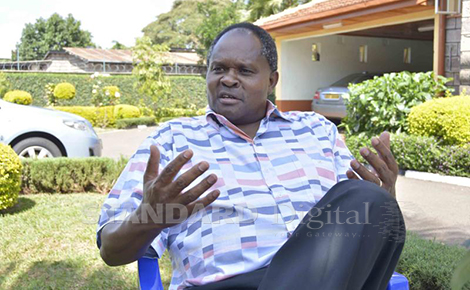×
The Standard e-Paper
Read Offline Anywhere
 |
| NEW VC MBITHI |
NAIROBI: Rays of light dance on the man in print short-sleeved shirt, contrasting his black pants that appear shaded in the afternoon sun. He is seated outside a manicured lawn teeming with rose flowers, a couple of books at his elbow.
He rises and extends a firm handshake and quickly switches to another seat at the request of the assignment photographer.